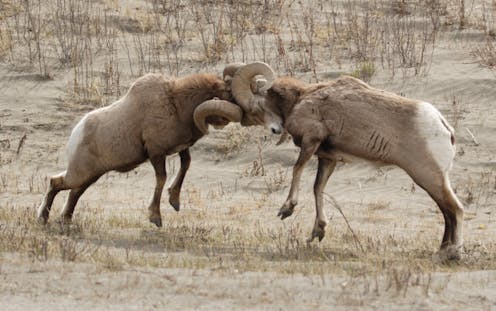Power struggles in nature can be more subtle, nuanced and strategic than just dog-eat-dog
- Written by Lee Alan Dugatkin, Professor of Biology and Distinguished Arts and Science Scholar, University of Louisville
 The battle for power in the animal world isn't always about brute force.photofellow/iStock via Getty Images Plus
The battle for power in the animal world isn't always about brute force.photofellow/iStock via Getty Images PlusScientists used to think power in animals played out in a tidy and simple way. Nature is a dog-eat-dog place. Rams butt heads in a thunderous spectacle, and the winning male gets to mate with a female. Bigger, stronger, meaner animals...
Read more: Power struggles in nature can be more subtle, nuanced and strategic than just dog-eat-dog

